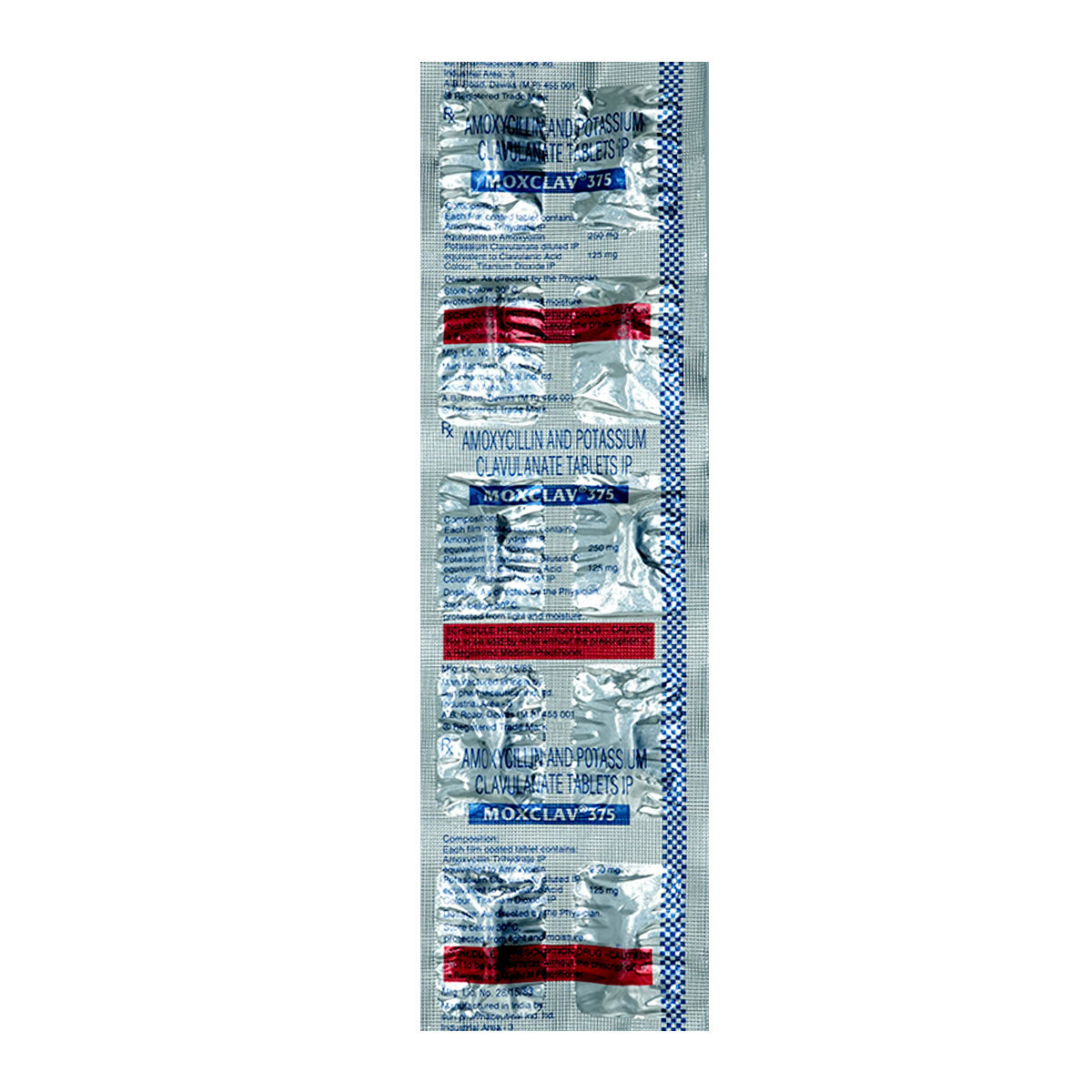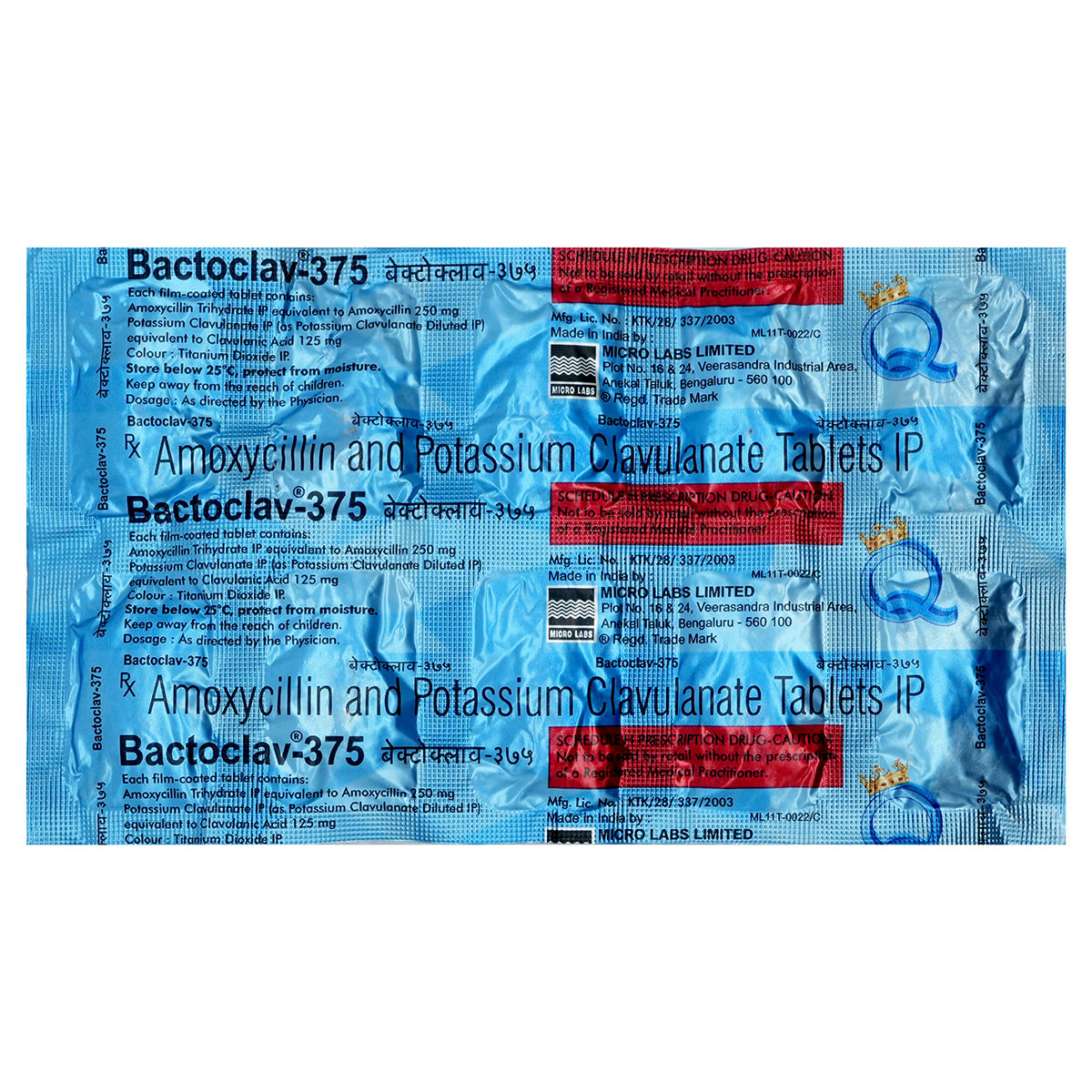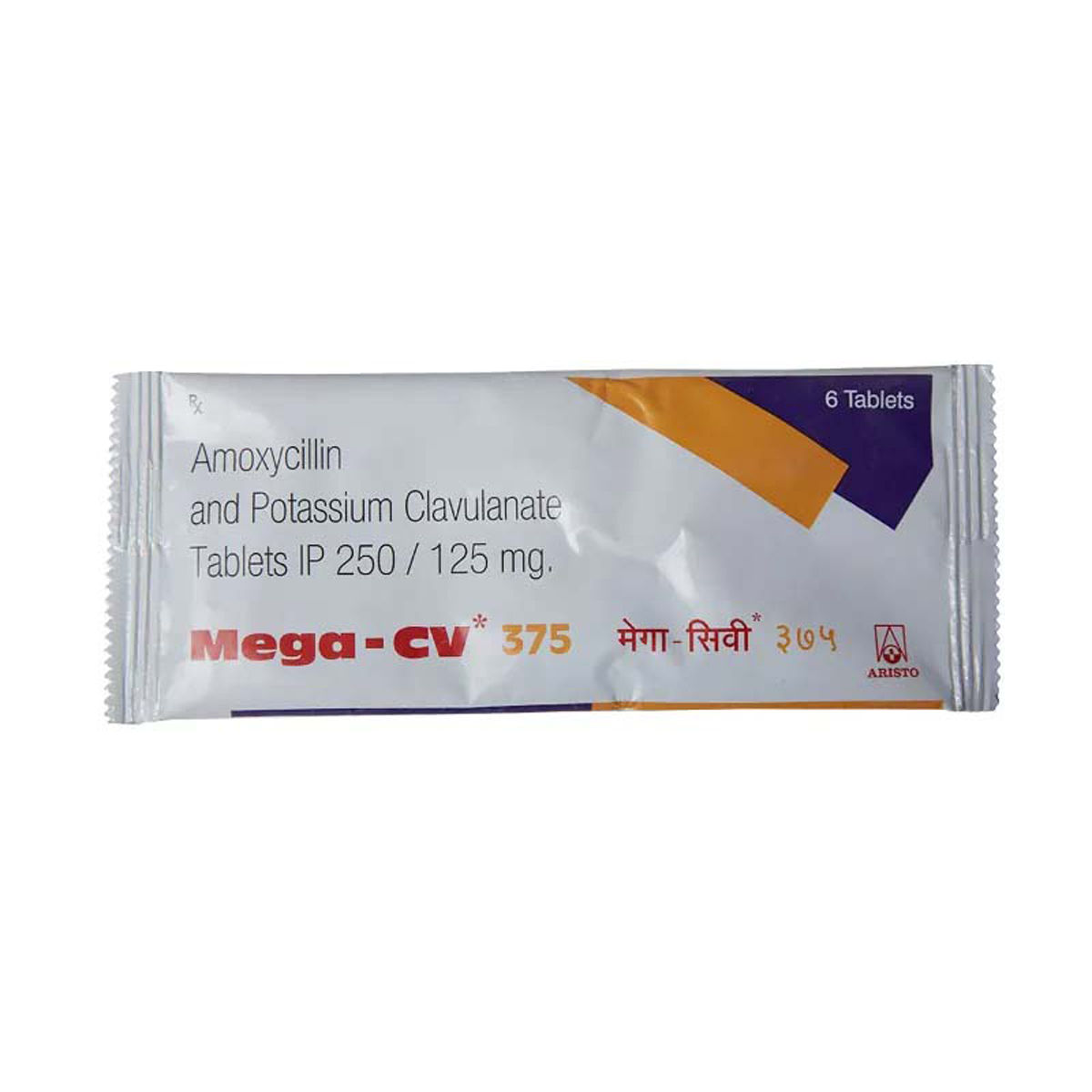Megamentin 375 mg Tablet 6's
₹167.4*
MRP ₹186
10% off
₹158.1*
MRP ₹186
15% CB
₹27.9 cashback(15%)
Free Delivery
With Circle membership
(Inclusive of all Taxes)
This offer price is valid on orders above ₹800. Apply coupon PHARMA10/PHARMA18 (excluding restricted items)
Know Your Delivery Time
Provide Delivery Location





Available Offers
 Prescription drug
Prescription drugWhats That

Secure Payment

India's Most Trusted Pharmacy

Genuine Products
Composition :
Manufacturer/Marketer :
Consume Type :
Return Policy :
Expires on or after :
About Megamentin 375 mg Tablet
Megamentin 375 mg Tablet is used to treat bacterial infections in the body that affect the skin, soft tissues, lungs, ears, urinary tract, and nasal sinuses. It should be mentioned that viral infections like the flu and the common cold are not treated by this medication.
Megamentin 375 mg Tablet consists of two medicines: Amoxycillin and Clavulanic acid. Amoxycillin acts by destroying the outer protein layer, thereby killing the bacteria (bactericidal action). Clavulanic acid inhibits the enzyme beta-lactamase, which prevents bacteria from destroying the efficacy of amoxycillin. As a result, the action of Clavulanic acid allows Amoxycillin to work better and kill the bacteria. Megamentin 375 mg Tablet does not work against infections caused by viruses, including colds and flu.
The dose of Megamentin 375 mg Tablet can vary depending on your condition and the severity of the infection. Also, it is recommended to complete the course of medicine even if you feel better as it is an antibiotic, and leaving it in between may lead to even severe infection that will, in fact, stop responding to the antibiotic as well (antibiotic resistance). The common side effects of Megamentin 375 mg Tablet include vomiting, nausea, and diarrhoea. Everyone may not experience the above side effects. In case of any discomfort, speak with a doctor.
Before starting Megamentin 375 mg Tablet, please inform your doctor if you have any allergy (against any antibiotic) or kidney or liver problems. Do not take Megamentin 375 mg Tablet on your own as self-medication since it may lead to antibiotic resistance in which antibiotics fail to act against specific bacterial infections. Megamentin 375 mg Tablet is safe for children if prescribed by a doctor; the dose and duration may vary depending on the child’s weight and the severity of the infection. Inform your doctor about all the medicines you are taking and about your health condition to rule out any unpleasant side effects.
Uses of Megamentin 375 mg Tablet
Directions for Use
Medicinal Benefits
Megamentin 375 mg Tablet is a broad-spectrum antibiotic that covers a very wide range of bacterial infections. Megamentin 375 mg Tablet has Clavulanic acid, which protects amoxycillin from getting destroyed by the bacterial enzyme, thus increasing its efficacy. Besides this, it helps overcome antibiotic resistance in bacteria that is caused by the enzyme beta-lactamase. This makes the drug effective in multiple infections like ear infections (acute otitis media), bronchitis, pneumonia, urinary tract infections, skin infections, etc.
How Megamentin 375 mg Tablet Works
Storage
Side Effects of Megamentin 375 mg Tablet
- Vomiting
- Diarrhea
- Indigestion
What if I have taken an overdose of Megamentin 375 mg Tablet
Drug Warnings
After taking Megamentin 375 mg Tablet, if you have an allergy-like symptom, including rash, swelling of the face/lips/throat, difficulty breathing, or tight chest tightness, immediately contact your doctor. Do not take Megamentin 375 mg Tablet if you have an allergy to Megamentin 375 mg Tablet, penicillin or cephalosporin class of antibiotics. People with liver diseases or jaundice (yellowing of skin/eye) should not take Megamentin 375 mg Tablet, as it can severely affect the liver. Consult your doctor before taking Megamentin 375 mg Tablet if you are pregnant or breastfeeding. Inform your doctor about all the medicines you are taking and about your health condition to rule out any unpleasant side effects.
Drug-Drug Interactions
Drug-Drug Interactions
Login/Sign Up
Co-administration of Megamentin 375 mg Tablet 6's and Cholera, live attenuated may reduce the activity of the vaccine.
How to manage the interaction:
If you are currently being treated with Megamentin 375 mg Tablet 6's or have been treated within the last 14 days, talk to your doctor before receiving cholera vaccine, live. Do not discontinue the medication without consulting a doctor.
Co-administration of Megamentin 375 mg Tablet 6's and Zalcitabine can be decreased when combined with Megamentin 375 mg Tablet 6's.
How to manage the interaction:
There may be a possibility of interaction between Zalcitabine and Megamentin 375 mg Tablet 6's, but it can be taken if prescribed by a doctor. Do not discontinue any medications without consulting a doctor.
Co-administration of BCG vaccine with Megamentin 375 mg Tablet 6's may reduce the effect of BCG vaccine.
How to manage the interaction:
If you are about to receive BCG vaccine, inform the doctor that you are taking Megamentin 375 mg Tablet 6's. Do not discontinue the medication without consulting a doctor.
Co-administration of methotrexate with Megamentin 375 mg Tablet 6's can increase the levels and side effects of methotrexate.
How to manage the interaction:
Although there is a possible interaction between methotrexate and Megamentin 375 mg Tablet 6's, you can take these medicines together if prescribed by your doctor. However, if you experience any symptoms such as tiredness, dizziness, fainting, unusual bleeding or bruising, chills, fever, sore throat, body pains. Consult a doctor immediately. Do not stop using medications without a doctor's advice.
Co-administration of Megamentin 375 mg Tablet 6's with doxycycline may reduce the therapeutic effect of Megamentin 375 mg Tablet 6's.
How to manage the interaction:
Although there is a possible interaction between Megamentin 375 mg Tablet 6's and Doxycycline, you can take these medicines together if prescribed by your doctor. Do not stop using any medications without consulting a doctor.
Drug-Food Interactions
Drug-Food Interactions
Login/Sign Up
Diet & Lifestyle Advise
Include more fibre-enriched food in your diet, as it can be easily digested by gut bacteria, which helps stimulate their growth. Thus, fibre-rich foods may help restore healthy gut bacteria after a course of antibiotics.
Whole grains like whole-grain bread and brown rice should be included in your diet.
Probiotics should be taken after taking a full course of Megamentin 375 mg Tablet in order to restore some healthy bacteria in the intestines that may have been killed. Taking probiotics after antibiotic treatment can reduce the risk of antibiotic-associated diarrhoea.
Certain fermented foods like yoghurt, cheese, sauerkraut, kombucha, and kimchi can help restore the intestine's good bacteria.
Avoid alcoholic beverages with Megamentin 375 mg Tablet as they can make you dehydrated and may affect your sleep. This can make it harder for your body to aid the Megamentin 375 mg Tablet in fighting off infections.
Habit Forming
Therapeutic Class
Megamentin 375 mg Tablet Substitute

Mox CV 375 Tablet 10's
by AYUR
₹26.01per tabletMoxclav 375 Tablet 10's
₹26.01per tabletAugmed 375 mg Tablet 6's
₹27.30per tabletCledomox 375 mg Tablet 6's
₹19.95per tabletBactoclav 375 Tablet 10's
₹21.51per tablet
Product Substitutes
Alcohol
Caution
Avoid consumption of alcohol during the treatment with Megamentin 375 mg Tablet as it may worsen the side effects like dizziness.
Pregnancy
Consult your doctor
If you are pregnant, consult your doctor before taking Megamentin 375 mg Tablet. Your doctor will prescribe this medicine if the benefits outweigh the risks.
Breast Feeding
Caution
This medication passes into breast milk. If you are a nursing mother, consult your doctor before taking Megamentin 375 mg Tablet. Your doctor will prescribe this medicine if the benefits outweigh the risks.
Driving
Caution
Megamentin 375 mg Tablet may cause dizziness in some people, so it may affect your ability to drive. Avoid driving or operating machines until you are alert after taking Megamentin 375 mg Tablet.
Liver
Caution
Megamentin 375 mg Tablet to be taken with caution if you have a history of liver conditions. Your doctor may adjust the dose if necessary based on your condition.
Kidney
Caution
Megamentin 375 mg Tablet to be taken with caution, especially if you have a history of kidney conditions. Your doctor may adjust the dose if necessary based on your condition.
Children
Consult your doctor
Please consult the doctor. Your child's doctor will decide the dosage of this medicine depending on the weight and the severity of the infection.
FAQs
Country of origin
Manufacturer/Marketer address
Disclaimer
Author Details
We provide you with authentic, trustworthy and relevant information





















